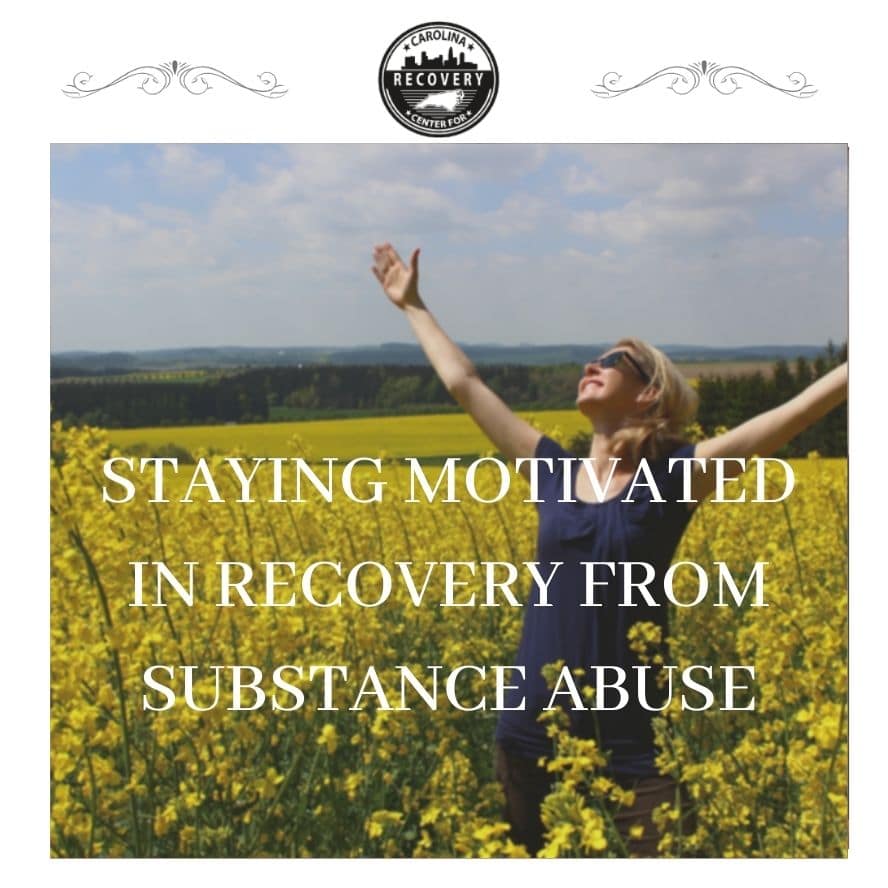Staying Motivated While in Recovery from Substance Abuse

Medically Verified: 2/1/24
Medical Reviewer
Chief Editor

All of the information on this page has been reviewed and verified by a certified addiction professional.
Addiction is a cunning disease that lures in its victims when they least expect it. One minute you think you have control over your life and the next minute you find yourself lying to the people you love the most – including yourself. Most of the time, addicts will start to struggle in their work-life, relationships, and all other responsibilities.
Making the decision to get sober is not easy and understanding this decision requires having the courage to admit you have a problem and the willingness to walk through the doors of a substance abuse treatment center is extremely important. Not only do you have to muster up the humility to ask for help, walk away from your habitual patterns, and even detach from unhealthy habits, but you also have to be willing to commit to your recovery. One of the most important things to consider is how you can stay motivated in recovery from substance abuse.
Importance of Motivation in Addiction Recovery
Motivation is defined as “the general desire or willingness of someone to do something.” When an individual has motivation it often means that he or she is willing and has the drive to behave or take action in a particular way. In other words, having motivation means an individual will have the will to put for the action in order to accomplish a task. In regards to recovery from addiction, motivation is the driving force behind maintaining long term sobriety. The first step towards recovery from substance abuse is admitting you need help.
Recovery from addiction is a life-long journey and this means that staying motivated is difficult at times. It is human nature to avoid discomfort and the unknown. Recovering from addiction is uncomfortable and challenging. After all, learning to let go of unhealthy patterns of behavior is hard, continuous work. Trusting the process of recovery and believing in the results of a happier, healthier life will often help sustain an individual’s commitment to their recovery from substance abuse.
Motivation is a key component of not only the potential outcome of rehabilitation from substance abuse but also in sustaining a sober lifestyle. Studies show that individuals with more intrinsic motivation for overcoming addiction are most likely to succeed in recovery.
Individuals who seek substance abuse treatment in order to improve their physical and mental wellbeing are more likely to succeed because their motivation is generally more sustainable than others. Individuals who are court-mandated or attempting to appease family members are less likely to be as successful in recovery as those individuals who seek recovery on their own accord. Overcoming addiction is one of the hardest but most important decisions an individual can make. However, individuals seeking treatment must be convinced not only of the dire threat their addiction poses to their health and livelihood, but also be motivated by the benefits of living a happy, healthy, and sober life. The human instinct for survival is fundamental when attempting to maintain motivation in recovery from substance abuse. Recovering from addiction is not only a test of strength, determination, surrender, but also perseverance which is often cultivated by motivation.
Staying Motivated in Recovery from Substance Abuse
The disease of addiction is a difficult cycle to break. Not only is an individual breaking their unhealthy relationship with other substances but also breaking patterns of unhealthy behaviors as well. Even after you have detoxed from substance use, it can still be difficult to stay on track. Through supportive sober communities and therapy, you will learn how to change negative thought patterns and develop healthy coping and communication skills. Here are a few things you can do to stay motivated in addiction recovery:
- Disconnect from harmful, codependent, and toxic relationships.
- Connect with sober, supportive people.
- Attend 12-step meetings and get involved with fellow group-therapy members and therapists.
- Avoid spending time with people who are still actively involved in their addiction and those who speak negatively.
- Maintain a consistent self-care routine. Take time for yourself and indulge in quiet moments in which you can meditate and reflect on yourself and your journey to recovery.
- Find activities and hobbies that pique your interest and fill your soul.
- Stay focused and remember where you came from. When things get difficult remind yourself why you are choosing a sober life. Stay focused and continue pushing towards the goal of maintaining continuous sobriety.
Therapy and Treatment at Carolina Center for Recovery
Carolina Center for Recovery is a state-licensed and CARF accredited substance abuse treatment facility. We are a dual-diagnosis facility with a primary focus on substance abuse, offering individualized, extended-term treatment in an intimate setting. Taking a holistic approach to treating addiction, our compassionate team at Carolina Center for Recovery understands how difficult recovery can be. That’s why our experienced team of addiction professionals offers our clients the best treatment, therapy, family programs, and alumni services possible.
Our mission is to watch all of our clients become completely free from the bondage of substance abuse. Contact us today to get started on the path to a life filled with happiness, serenity, and sobriety.

